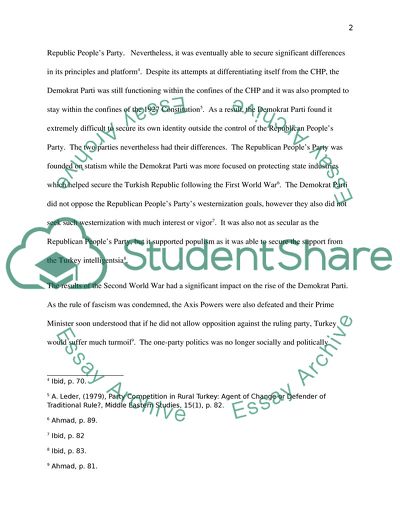Cite this document
(“1.The Demokrat Parti was elected with a popular mandate, but within Essay”, n.d.)
1.The Demokrat Parti was elected with a popular mandate, but within Essay. Retrieved from https://studentshare.org/history/1612269-1the-demokrat-parti-was-elected-with-a-popular-mandate-but-within-ten-years-it-was-removed-from-government-by-a-military-coup-explain-this-turn-of-events-while-accounting-for-the-fact-that-the-dp-retained-its-popularity-throughout
1.The Demokrat Parti was elected with a popular mandate, but within Essay. Retrieved from https://studentshare.org/history/1612269-1the-demokrat-parti-was-elected-with-a-popular-mandate-but-within-ten-years-it-was-removed-from-government-by-a-military-coup-explain-this-turn-of-events-while-accounting-for-the-fact-that-the-dp-retained-its-popularity-throughout
(1.The Demokrat Parti Was Elected With a Popular Mandate, But Within Essay)
1.The Demokrat Parti Was Elected With a Popular Mandate, But Within Essay. https://studentshare.org/history/1612269-1the-demokrat-parti-was-elected-with-a-popular-mandate-but-within-ten-years-it-was-removed-from-government-by-a-military-coup-explain-this-turn-of-events-while-accounting-for-the-fact-that-the-dp-retained-its-popularity-throughout.
1.The Demokrat Parti Was Elected With a Popular Mandate, But Within Essay. https://studentshare.org/history/1612269-1the-demokrat-parti-was-elected-with-a-popular-mandate-but-within-ten-years-it-was-removed-from-government-by-a-military-coup-explain-this-turn-of-events-while-accounting-for-the-fact-that-the-dp-retained-its-popularity-throughout.
“1.The Demokrat Parti Was Elected With a Popular Mandate, But Within Essay”, n.d. https://studentshare.org/history/1612269-1the-demokrat-parti-was-elected-with-a-popular-mandate-but-within-ten-years-it-was-removed-from-government-by-a-military-coup-explain-this-turn-of-events-while-accounting-for-the-fact-that-the-dp-retained-its-popularity-throughout.


